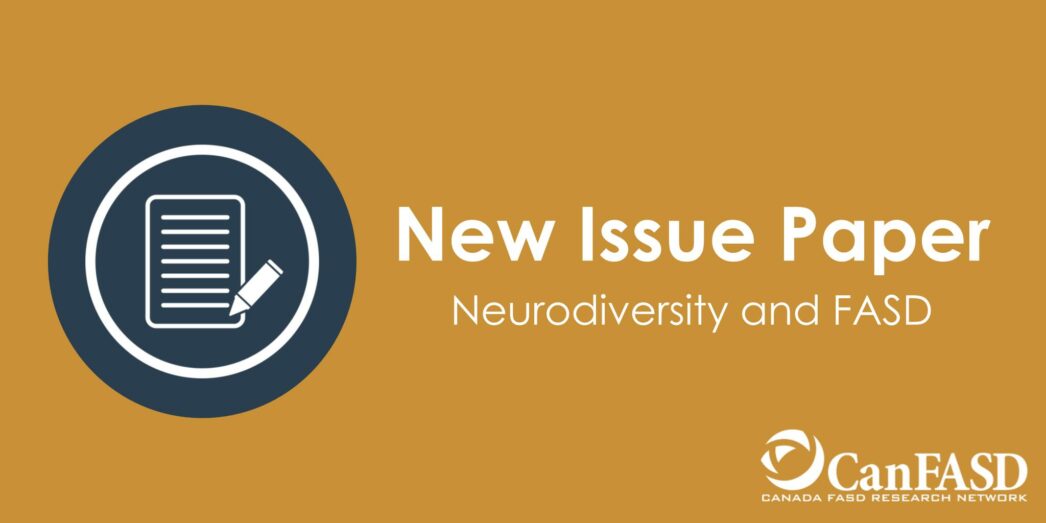CanFASD recently released a new issue paper, Neurodiversity and FASD. Below is a short summary. You can find the full issue paper here.
Issue
The term ‘neurodiversity’ – representing a wide variety of differences among humanity – dates back to the late 1990’s. The goal of introducing this new term and concept was to promote equity and inclusion of individuals with disabilities who wanted to be viewed as different, rather than disabled. While the concept has grown in popularity over the decades, there is no clear shared understanding of what ‘neurodiversity’ means or who can (or cannot) be considered neurodivergent.
Background
- There are several different ways of thinking about neurodiversity, including:
- Individual-Level Perspective – An individual-level perspective of neurodiversity focuses on the “value of variety”
- Systems-Level Perspective – A systems-level perspective of neurodiversity sees it as a means to challenge what is considered “normal”
- Both the individual and systems-level perspectives of neurodiversity are critical in the context of FASD
- Individual concepts must be considered when exploring identity, autonomy, and healthy outcomes
- The social framework is important to ensure all members of society have what they need to grow and thrive
- The terms FASD and neurodiversity aren’t interchangeable but each term is valuable
- Although there are tensions around neurodiversity and FASD, conversations about it are starting to happen
- There isn’t much we formally know about FASD and neurodiversity but people with FASD want a voice and want to be recognized in these spaces
Take Home Message
Neurodiversity may be a complex concept, but at the core, individuals should be appreciated for who they are, differences and all. As a society, we have a responsibility to create equitable access to opportunity for all. Moving forward, it is critical to understand how individuals with FASD interact with neurodiverse labels and within communities as these individuals want to have a voice, be recognized, and be supported in their uniqueness.
For more information, including recommendations, please read the full issue paper here.
Authors: Kelly Harding, Jacqueline Pei, & Lauren Richardson
Date: February 2023

